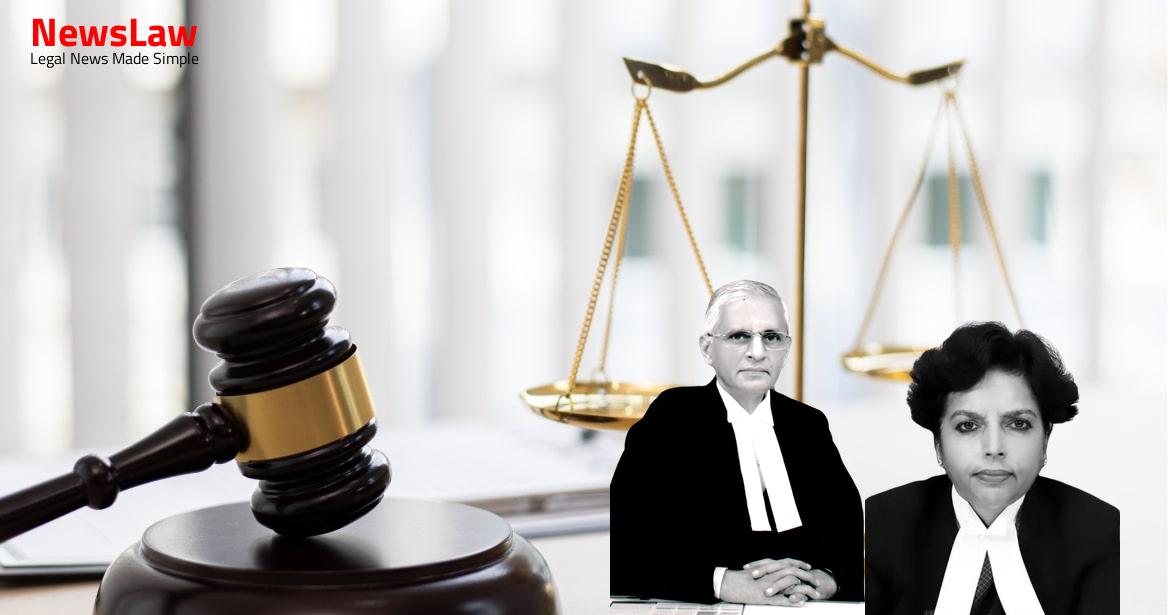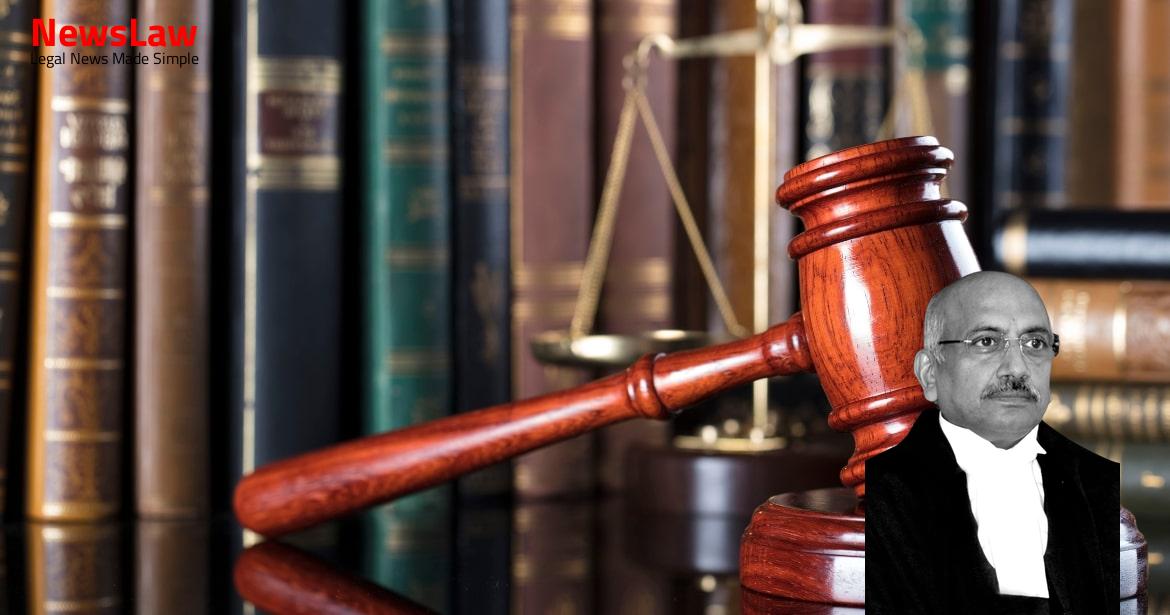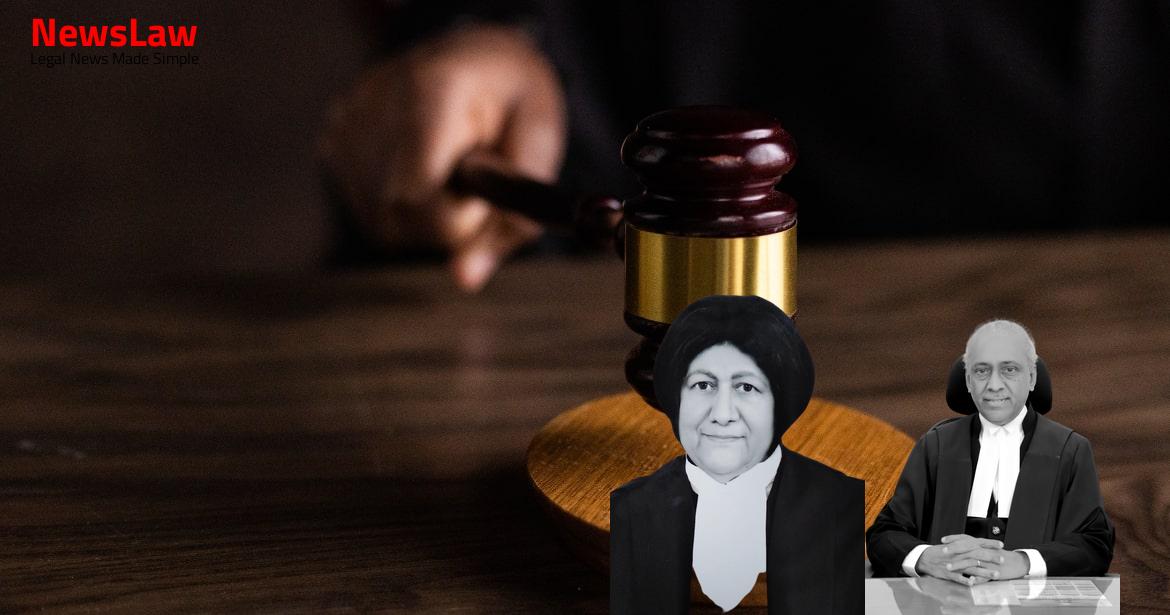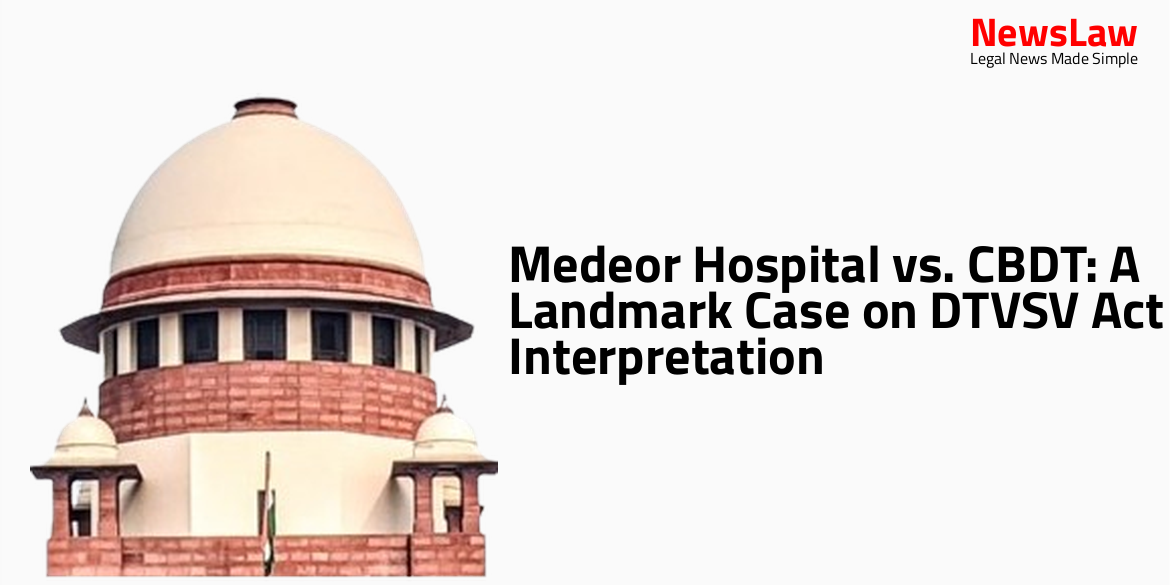In a recent legal case, the court undertook a thorough legal analysis of a contentious land ownership dispute. The focus was on the court’s in-depth examination of procedural grounds for review and recall, emphasizing the importance of parties directly involved exercising their rights. Additionally, the court delved into the challenges of filing frivolous petitions and differentiating genuine public interest cases from those lacking locus standi. Follow our blog post to gain insights into the court’s meticulous legal scrutiny in resolving this intricate land dispute.
Facts
- The Consent Decree affirmed the findings in favor of the State under the Salsette Estates Act, but the Gonsalves family were not a party to the decree or the proceedings.
- The possession of the appellant on the land is established, and whether it is authorized or encroached is subject to evidence.
- The Additional Collector and the Sub-Divisional Officer erred in treating CTS No. 229 as Government land, as Shri Gonsalves proved possession before the consent terms.
- The Gonsalves family initiated a Civil Suit stating that certain orders were void and illegal, emphasizing the Deed of Exchange from 1894.
- Esteem Properties Pvt. Ltd. succeeded the Gonsalves family in ownership of the land through various legal proceedings.
- Multiple orders and reviews were conducted regarding the land ownership, with the Revenue Minister recalling ex-parte orders due to procedural errors.
- The State also challenged orders, with the existence of deeds and exchange documents influencing the land’s status.
- The High Court directed to maintain status quo pending further clarifications.
Also Read: Electoral Malpractices in Mayor Election
Issue
- Question of whether the land in possession of Shri Gonsalves & Others is the same land declared as Government land in the consent terms.
- Determination of whether the petitioners have locus standi to maintain the petition.
- Assessment of whether a person not party to the revision proceedings, without succeeding to the property from the original applicant but with an agreement to sell, could maintain the second Review Application (Procedural Review).
Also Read: Balancing Power and Transparency: Electoral Bonds Struck Down, Disclosure Mandated
Arguments
- The petitioner has a history with criminal antecedents, making the PIL they filed questionable.
- The Wadias, in consent terms filed in a suit, admitted the State’s right to the land under the Salsette Abolition Act.
- The issue was already before a Competent Civil Court at the instance of the Gonsalves family, so the Revisional Authority should have declined to exercise jurisdiction.
- The State government stated that the appellants were not given a hearing before a certain order was passed.
- Challenging a quasi-judicial authority’s order through a Public Interest Litigation by a third party is not permissible.
- On merits, the effect of a specific order was the restoration of an earlier order.
- The respondents in the PIL do not have any interest in the private property.
- The writ petition was moved as public property belonging to the State Government was being transferred to private individuals, resulting in loss of public revenue.
Also Read: Recall of Resolution Plan Approval: Legal Analysis
Analysis
- Public Interest Litigation involving a title dispute dating back six decades was given high priority by the Courts.
- The dispute involved the Revenue Authorities holding the land as not public land, affecting public revenue.
- The need for parties to establish locus standi in public interest litigation was emphasized.
- The High Court’s decision to allow parties not directly involved in the proceedings to litigate on title and ownership issues was questioned.
- The importance of natural justice and the opportunity of hearing in administrative and quasi-judicial proceedings was reiterated.
- The review and recall of orders were discussed in the context of the case, highlighting procedural lapses and adherence to legal provisions.
- The role of PIL in Indian jurisprudence in addressing public harm and improving citizen conditions was acknowledged.
- The Court’s consideration of evidence, procedural reviews, and legal principles in deciding on the title and ownership dispute was examined.
- The analysis focused on the procedural grounds for review and recall, highlighting the need for parties directly involved in the proceedings to exercise these rights.
- The challenges of filing frivolous petitions and the need to differentiate between genuine public interest cases and those lacking locus standi were discussed.
- Courts should ensure the credentials of the petitioner are verified before entertaining a PIL.
- Courts should ascertain no personal gain, private motive, or oblique motive behind filing the PIL.
- High Courts need to be cautious in entertaining public interest litigation, especially in cases involving private parties and the State.
- Proper rules need to be formulated by each High Court to encourage genuine PILs and discourage those with oblique motives.
- Courts should be cautious when examining locus standi to prevent frivolous or private interests from masquerading as genuine claims in PILs.
- Section 258 of the MLR Code allows the State Government and revenue or survey office to review any order passed by them or their predecessors.
- The review can be initiated by the State Government or office itself, or by an interested party through an application.
- Orders can be varied or reversed only after giving notice to the parties involved for them to appear and be heard in support of the order.
- The institution of public interest litigation was deemed an abuse of process in this case.
- The State has confirmed they do not have an interest in pursuing ownership of the land in question and have recognized the title of the appellants.
- The conclusion was further supported by the fact that the Gonsalves family was not provided with a sufficient hearing.
- Due to the above reasons, detailed discussion on the validity of the order dated 10.12.2007 was deemed unnecessary.
Decision
- The pending applications are disposed of accordingly.
- The Civil Appeals are allowed with costs.
- Question No. 2 is answered along with Question No. 1.
- Respondent Nos. 1 and 2 have sufficient locus to maintain the Public Interest Litigation.
- The order dated 10.12.2007 passed by the Revenue Minister is valid in law.
Case Title: ESTEEM PROPERTIES P.LTD. Vs. CHETAN KAMBLE . (2022 INSC 242)
Case Number: C.A. No.-010425-010425 / 2010



